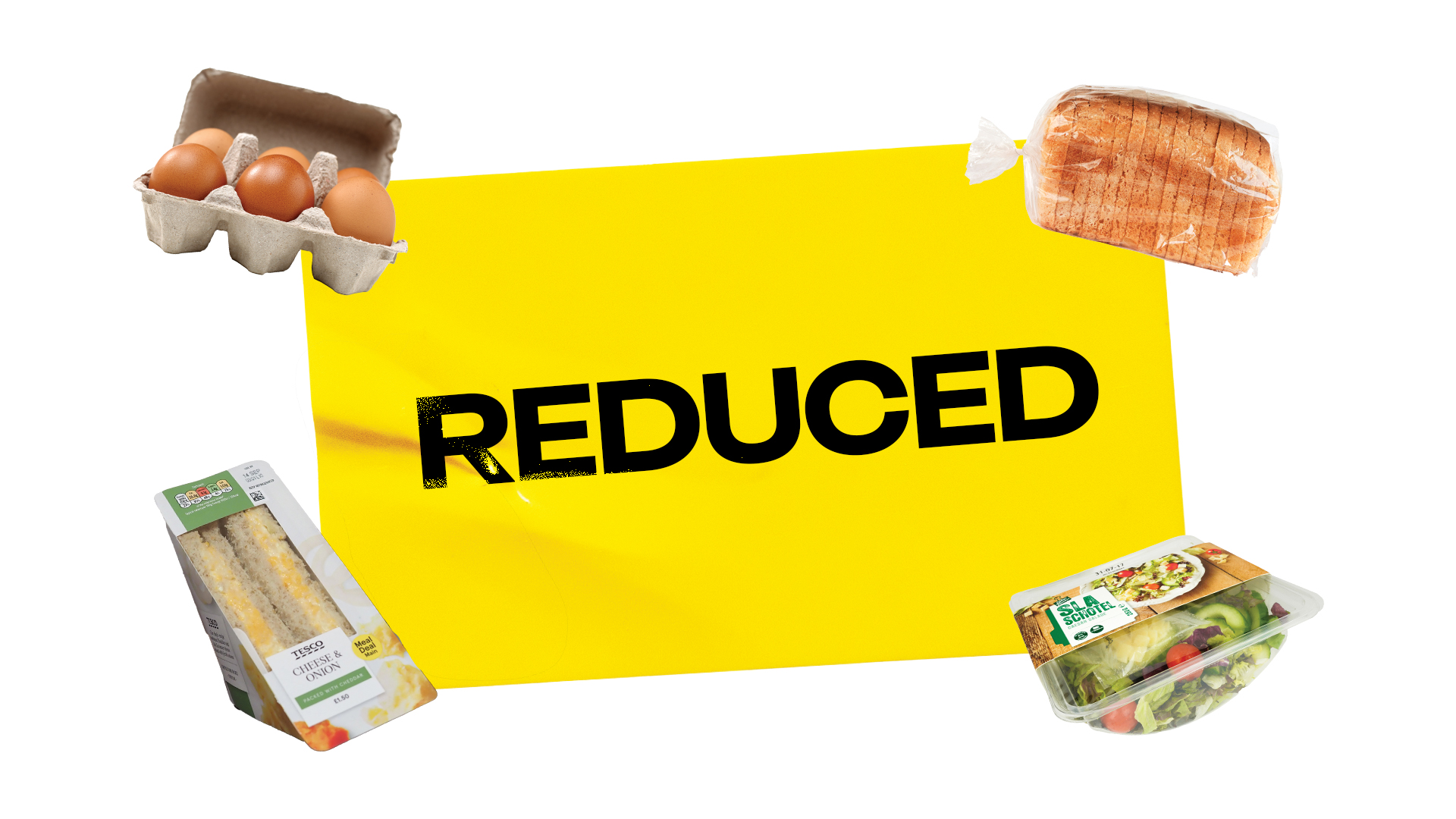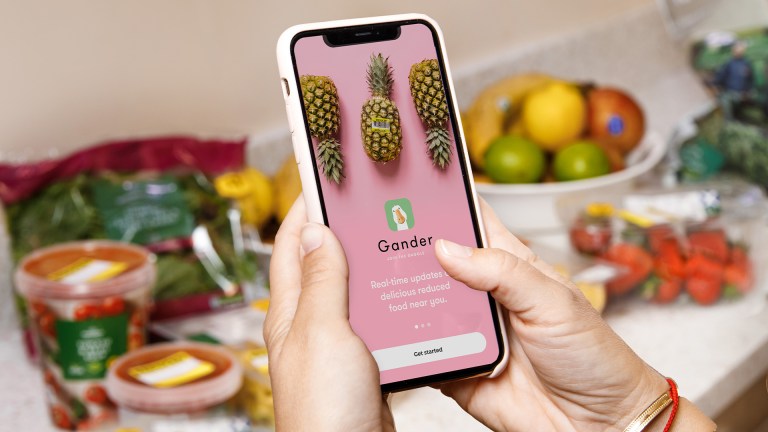Read more:
The project of tracking and sharing the best deals has brought Clarkson’s family closer together – his 15-year-old nephew helps run the account. Family is at the heart of the yellow sticker subculture.
Naomi Thompson, 43, is an antiques dealer with an eye for patterns and a love of bargains. She uses discounts to provide her family of four a “champagne life on a lemonade budget”. Thompson has spent years figuring out the best time to go to the shops in her area and now estimates that yellow sticker items account for 95% of her food purchases.
When she finds great deals, she will often buy extras for her friends or put photos on Facebook to let people know what’s on offer. “I turned up somewhere the other day with three packets of organic eggs that were 30p each and people were delighted. Who doesn’t want organic eggs?” she says.
But, Thompson adds, she does believe people should only take what they need: “I hate it when I see someone talking literally every discounted item – who needs 12 packets of prawns? I believe in yellow sticker karma, that’s why I don’t like taking everything. Don’t be rude, don’t be greedy, and the bargains will manifest themselves. I take the same attitude to my work.”
Thompson has fine-tuned her yellow sticker shopping habits, heading to the shops in the quiet moments before the school run and just before people finish work, which she says are the best times for a deal.
Advertising helps fund Big Issue’s mission to end poverty
But for people who work full-time or have other commitments, she has some advice: “I once went to Waitrose on a really sunny bank holiday and I got the best deals I’ve ever had in my life. So there are ways around it. You just need to go when other people will be busy – sporting events, sunny days, they are the best times.”
One way she has learned to find the best deals is by asking staff questions. “If people really want to put a bit of dedication into it, I have never had a bad response in the shops when I’ve asked people when they do reductions. You may have to swallow your pride a little, but just be polite and inquisitive and they will usually tell you when they reduce things.”
It has paid off for Thompson who’s able to buy the food she grew up eating in France and Spain without paying premium prices.
While some use the stickers as an essential way to feed their families, for others, it helps to add a bit of variety while making the most of their budgets.
Shah, 27, uses the deals in his local Morrisons to help stretch his money further. “I don’t need yellow stickers to survive, but they are very handy for opening the door to variety,” he says. “So, I tend to go and if anything catches my fancy, I’ll get it.”
As Shah works from home, he is sometimes able to go twice a day, finding lunch time and just after work the best time for deals.
Advertising helps fund Big Issue’s mission to end poverty
“At lunch time, I have found my local shop tends to put out their ready meals, so if I just fancy something easy for lunch, that’s very helpful. I go on a walk after work and usually pop in and they put the deli items on discount around 7pm. I think it’s just about building a habit of going in regularly to learn when things are available.”
And, he says, the novelty of the deals also helps manage his ADHD symptoms. “A big problem for me is I will fancy something for dinner and automatically assume I don’t have certain ingredients. So I’ll go and get spring onions, for example, and then come home and realise I have two bunches in the fridge already. But with the yellow stickers, I tend to remember what I got a bit better.”
Do you have a story to tell or opinions to share about this? Get in touch and tell us more.
Change a vendor’s life this Christmas.
Buy from your local Big Issue vendor every week – or support online with a vendor support kit or a subscription – and help people work their way out of poverty with dignity.





